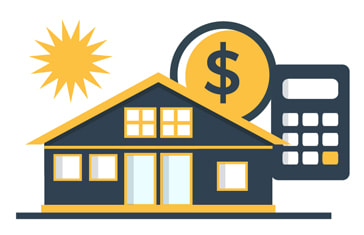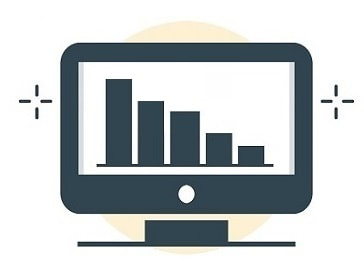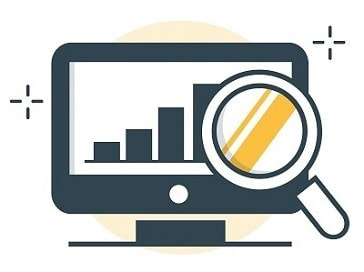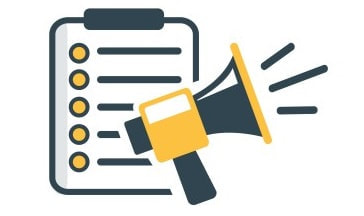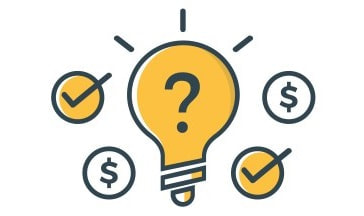What To Do if You Bought a House at the Peak of the New Zealand Market
Our guide explains what the recent housing market fluctuations mean for you, outlines strategies to manage your property's value against rising interest rates, and explores the implications of having bought at the height of the market.
Updated 8 November 2023
Summary:
Our guide covers:
- If you are one of the many Kiwis who took the leap into homeownership at the market's heights of 2020 and 2021, leveraging historically low interest rates, the current economic landscape of soaring interest rates may seem daunting.
- The dream of owning a home, which felt within arm's reach just a short while ago, has now been clouded with the stress of escalating repayments and an unpredictable property market as this Stuff.co.nz article outlines in July 2023.
- The landscape of the New Zealand housing market is complex, with prices in some areas bucking the trend by holding steady or even rising, despite the overall downturn. It's important to recognise that the impact of falling house prices varies widely across different regions, cities, and neighbourhoods.
- The guidance provided here is broad in scope, and designed to assist homeowners across the spectrum, regardless of where they are situated.
- Our comprehensive guide aims to demystify the circumstances surrounding your investment in these turbulent times. We delve into what these market fluctuations mean for you, outline strategies to manage your property's value against rising interest rates, and explore the implications of having bought at the height of the market.
- By distilling the complexities of the current situation, we hope to offer peace of mind and a clear path forward for homeowners who are navigating these choppy waters.
Our guide covers:
- What are The Top Things I Need to Know About Falling House Prices?
- What Should I Do if I Bought (or Buy) My First Home at the Top of the Housing Market?
- What are the Implications of Buying a House at the Top of the Property Market?
- What are Popular Ways to Approach and Manage a Housing Market Downturn?
- Bought at the Market Peak at Low Interest Rates? Our Must-Know Facts Explain More About What Comes Next
- Frequently Asked Questions
MoneyHub Founder Christopher Walsh explains the problem of high interest rates mixing with high house purchase prices:
|
"As we face these uncertain times, I want you to know you're not alone. Many of us feel the pinch, with every decision now seeming more crucial than ever. For many, there is less fun to be had as they forego that weekend outing or skip the usual takeout to save some extra dollars. It's about looking at our daily habits and asking, 'Is this helping me keep my home?' Every small sacrifice can make a big difference when the cost of living remains high, nothing is done about expensive groceries, insurance costs rise, and the NZD remains weak.
Many New Zealanders are facing a mortgage time bomb - 3% rates going to 7% is tough, especially when 3% wasn't an easy ride in the first place. However, resilience and adaptability are our greatest allies. Cutting back, tightening up, and making smart financial choices - while it's common sense, it's the only way. While high interest rates and peak home purchase prices may seem like a storm now, skies will clear, and you'll look back knowing you did everything possible to protect your home and peace of mind. We've published this guide to bring clarity and comfort when higher interest rates and locked-in purchase prices have, for many, become very much a drain on cash". |
Christopher Walsh
MoneyHub Founder |
What are The Top Things I Need to Know About Falling House Prices?
1. Generally, entry-level properties are more insulated against significant price decreases.
Most market commentators think the New Zealand real estate market won't reach the 30-40% decline that some predict. Instead, for those who bought entry-level houses around the peak of the market in 2020 to 2022, a 10% - 15% drop in prices is anticipated, which is around half of 2021's gain. Entry-level houses are generally somewhat insulated against major price falls due to several factors:
- Demand for entry-level housing often outstrips supply, and although this is not currently the case due to the current market conditions, this will likely change in the future as more Kiwis look to buy their first homes.
- Mortgage interest rates may ultimately settle in the mid-single-digit range (from the upper single-digit range it currently resides in), which will make borrowing relatively more affordable than it currently is today. This increased affordability will encourage first-time home buyers back into the market, leading to increasing demand for homes (particularly for entry-level homes).
- The price of new builds is largely dictated by build costs, which are unlikely to decrease soon, leading to a small decrease in land value rather than a significant drop in house prices. However, parts of the market, such as development property, will be more vulnerable and may experience larger price drops.
2. Inflation can be beneficial for house price recovery and affordability.
Inflation, while causing short-term pain, has an unexpected, positive long-term impact on affordability and house price recovery. This scenario plays out because inflation leads to wage and salary increases over time, which can help to compensate for the higher cost of living (however, if salary increases are less than inflation this becomes an issue). This wage rise is particularly relevant in light of the current skills shortages and high unemployment in certain industries, as employers will be eager to retain their best talent. In addition, this increase in income will help ease the financial burden created by recent interest rate hikes for homeowners and improve affordability for prospective first-time home buyers.
Growth in household income is a major factor that drives house price increases, and between 2010 and 2020, house prices have followed suit with robust household income (HHI) increases. Further, as inflation drives higher incomes, building activity slows, and interest rates stabilise, house price declines will slow. However, other parts of the market may take longer to bounce back.
More details on inflation and its effects can be found in our related guides below:
Growth in household income is a major factor that drives house price increases, and between 2010 and 2020, house prices have followed suit with robust household income (HHI) increases. Further, as inflation drives higher incomes, building activity slows, and interest rates stabilise, house price declines will slow. However, other parts of the market may take longer to bounce back.
More details on inflation and its effects can be found in our related guides below:
3. Those with a longer time horizon and the ability to meet mortgage payments will be impacted less.
- Recent performance in the housing market is less likely to impact those who purchased property to live in it for the long term and can meet mortgage payments.
- By viewing housing through a long-term lens and accepting that it will have periods of good and bad performance, Kiwis will likely be in a better mindset to make more rational, calculated decisions regarding housing and are less likely to make impulsive selling or buying decisions.
- Those who bought a property to flip it as a short-term investment are far more likely to be impacted than someone who bought it to hold it for decades.
What Should I Do if I Bought (or Buy) My First Home at the Top of the Housing Market?
Keeping a calm and level head is important if you've recently purchased your first home at the top of the housing market. It's easy to feel overwhelmed and panicked in this situation, but it's important to remember that the housing market is cyclical, and prices will eventually recover. Arguably, the only thing that matters is having enough free cash to continue to repay the mortgage and that you don't plan to move. If you can do that, negative equity is not relevant because you can meet your obligations and you don't need to sell the house (which, if you did, may mean a realised cash loss being the difference between what it sells for and what you originally paid.
To help ensure you're cashflow is positive, here are popular ways to reduce any potential risks of falling house prices:
To help ensure you're cashflow is positive, here are popular ways to reduce any potential risks of falling house prices:
- Review your current budget and future mortgage payment changes (if applicable): Take a hard look at your budget and see if there are any areas where you can cut back on spending. This review will help you free up more cash towards your mortgage payments and ensure you're financially secure. Our guide to saving on household bills is a helpful starting point.
- Home Improvements: You can increase your home's value by making large and small improvements. This could range from updating a bathroom, improving your home's energy efficiency, or adding a home office.
- Extra Payments: It's unlikely to be possible for many, given the high cost of interest, but if you can make extra mortgage payments, this will help build equity faster and reduce the amount of interest paid over the life of the loan.
- Consider Renting out Part of Your Home: If your home has extra space, consider renting out a spare room - the rental income can help offset your mortgage payments.
- Don't Panic Sell: It's important not to make rash decisions out of fear. Selling your home at a loss soon after buying it should generally be a last resort.
- Insurance: Ensure that your home is properly insured. This helps protect your investment from unexpected events like natural disasters.
- Consider refinancing your mortgage: If you're having trouble meeting your mortgage payments, consider refinancing your loan to a lower interest rate, or using an offset mortgage if you have savings. Refinancing your loan may help to reduce your monthly payments and make it easier to keep up with your debts.
What are the Implications of Buying a House at the Top of the Property Market?
1. Negative equity
- One of the most significant implications is the risk of negative equity, which occurs when the value of your home falls below the amount you owe on your mortgage.
- For example, this scenario can happen if the housing market experiences a downturn and property prices fall. If you find yourself in a situation of negative equity, it may be difficult to sell your home or refinance your mortgage, as you may not have enough equity to cover the costs of these transactions.
2. Risk of defaulting on your mortgage
- There is a risk of default if you can't pay your mortgage; many are struggling as cheap rates end and new rates are much higher. If you can’t make your mortgage payments, the lender may initiate mortgagee sale proceedings, which can lead to you losing your property.
- Closely tied to the negative equity rationale above, the risk of default rises as property prices decline because running into difficulties refinancing or selling a property can limit your options at a time when other factors (such as an economic recession or rising cost of living) put pressure on your ability to keep up with your mortgage payments.
- Additionally, if you experience financial difficulties, such as job loss or unexpected expenses, it may become harder to make your mortgage payments if your property value has decreased (because you don't want to "sell at a loss" and realise a loss on your property). In this case, the decline in property prices limits your options as a homeowner and puts you in a tough financial situation, thus increasing the risk of default. Many homeowners consider income protection insurance to help them pay their mortgage if something unplanned happens.
3. Reduced financial flexibility
Another potential implication of buying a house at the top of the market is that you may have less room for financial flexibility. For example, if you've taken on a large mortgage with a high-interest rate, you may have less disposable income available to cover unexpected expenses or invest in other opportunities. This situation can be particularly challenging if you've also taken on other debts, such as credit card balances or student loans.
What are Popular Ways to Approach and Manage a Housing Market Downturn?
If you're concerned about weathering a housing downturn, here are a few tips to help protect your financial well-being:
- Stay calm and try not to panic: It's important to stay calm and not let fear guide your decisions during a housing downturn. Panicking and making hasty decisions can lead to financial mistakes that will be hard to recover from.
- Understand whether you want to keep your home or are in a position to sell it: Before making any decisions, it's important to evaluate your current situation and understand if you want to keep your home or if you're in a position to sell it. For example, consider the reasons you bought the property first, your current lifestyle and the overall financial impact of holding onto or selling the property.
- Weigh the cons of home ownership vs renting: A housing downturn can also be an opportunity to re-evaluate the pros and cons of home ownership vs renting. Consider each option's costs, responsibilities, benefits, and whether renting may be more financially viable. For a more comprehensive breakdown when comparing renting and owning a home, check out our guide here.
- Pay your mortgage off faster if possible: Paying down your mortgage faster can help to reduce your financial burden and make your mortgage more affordable. Look into making extra payments or paying bi-weekly instead of monthly. Check out our guide for a deeper dive into how to pay your mortgage faster.
- Ensure your job income is steady: A stable job income is important to ensure you can keep up with your mortgage payments during a housing downturn. If you're worried about losing your job or experiencing a reduction in income, consider looking for a new job or taking steps to make your current job more secure.
- Take a longer-term mindset: It's important to remember that a housing downturn is short-term and that the housing market will almost always recover in the long run. So try to look at the big picture and make decisions that will benefit you in the long term rather than trying to make a quick profit.
- Cut back on unnecessary expenses if possible: Take a close look at your budget and see if there are any areas where you can cut back on spending. This budget review will help you free up more cash towards your mortgage payments and ensure you're financially secure.
Bought at the Market Peak at Low Interest Rates? Our Must-Know Facts Explain More About What Comes Next
1. The housing market is cyclical, and depressed housing prices won't stay like that forever
The housing market in New Zealand is cyclical and will experience ups and downs over time. If you're able to hold the property during the tough times, you'll likely reap the benefits of property ownership, which others may be forced to sell. In November 2023, Stuff.co.nz published a story suggesting falls have finished, but nothing is certain and the full effect of higher interest rates are not yet known.
2. Diversify your investments outside of just property
If you're concerned about the impact of a property market downturn on your wealth, consider diversifying your investments to include a mix of assets alongside your housing exposure. This diversification can help reduce your portfolio's overall risk and provide a buffer against property market downturns. Many New Zealanders are moving funds into term deposits, which have become an attractive source of fixed income with low risk.
3. Try NOT to focus on news headlines
The short-term outlook may be still be uncertain despite some positive news in November 2023. However, the long-term outlook may not be as negative as it may seem.
Our View: Stick to facts and statistics from official sources like Statistics New Zealand (Stats NZ), the Reserve Bank of New Zealand (RBNZ) or the Real Estate Institute of New Zealand (REINZ), rather than property publications make a considerable amount of money for their owners by pushing positive property stories and stoking fear of 'missing out'.
Our View: Stick to facts and statistics from official sources like Statistics New Zealand (Stats NZ), the Reserve Bank of New Zealand (RBNZ) or the Real Estate Institute of New Zealand (REINZ), rather than property publications make a considerable amount of money for their owners by pushing positive property stories and stoking fear of 'missing out'.
4. Stay up to date with property market trends
Keep an eye on the housing market and stay informed about any changes or trends that may impact the value of your home. Tracking what the property market is doing can help you make more informed decisions about what to do with your mortgage, property or your financial situation generally. We strongly suggest interest.co.nz for property information.
Frequently Asked Questions
What should I do if I can't afford my mortgage payments?
- If you're having trouble affording your mortgage payments, consider refinancing your loan to a longer term, e.g. 30 years rather than 25. You may also want to review your budget and cut back on unnecessary expenses to free up more cash for your mortgage. Our guide to cutting household costs has more details.
- If you're feeling uncertain about your financial situation, you must talk to your bank. Our guide to mortgage relief and assistance has more details, as does our guide to debt help.
Can I do anything to prevent negative equity if I buy my house at the top of the market?
- Wellington and other parts of the North Island have fallen significantly since their peak. There is no guaranteed way to prevent negative equity if you've purchased your home at the top of the market. However, you can help mitigate the risk by maintaining a strong financial position, keeping up with repayments and staying up to date with market trends.
Is it possible to sell my house at a profit if I purchased it at the top of the market?
- It's possible to sell your house at a profit even if you bought it at the top of the market, but it may take longer for the value of your home to appreciate. You'll need to consider the specific factors that may impact the value of your home, such as location, condition, and the state of the local market.
Should I sell my house at a loss if I think housing prices will continue to fall?
Selling your house at a loss can be difficult emotionally and financially - however, if you believe that you cannot afford your mortgage payments, your options may be limited and selling your house may be an essential next step.

